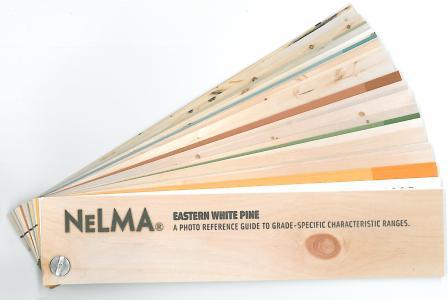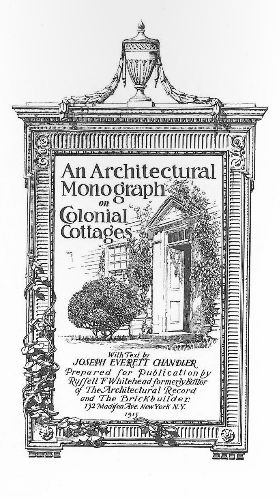“It is a strange anomaly that the white pine, with its home in a land of harsh winters, growing amidst the constant stress of wind and storm, should have a fiber straight as a ruled line, a surface soft and smooth as silk, and that its grain, instead of being gnarled and twisted, should be so even and fine that it will respond to the most delicate of carving,” observes C. Howard Walker of watching the logs come down the Penobscot River in Maine in Volume VI, Issue II of the White Pine Architectural Monographs. Written in 1918, this issue covers older homes on the southern coast of Maine, as well as the challenges faced by the lumber industry during World War I.
Portland, Bath and other Maine coast towns benefited economically from the East India trade in the first century after the Revolutionary War, leading to ‘comfortable fortunes’ and the construction of a number of private homes for ‘amphibiously minded merchants of Maine.’ Many were built between 1800 and 1810 with a combination of hardware, relief ornaments, wallpaper and other materials brought in from London, and other elements created by skilled New England carpenters.
A special section in this issue addresses how the lumber industry shifted to meet war conditions, particularly transportation problems due to a railroad embargo. “Every order placed for lumber at the present time must carry with it the understanding that there can be no guarantee as to shipment. …But with a patriotic spirit the existing situation can be met so as to cause no real hardship to anyone. There is one encouraging feature of the situation. The problems of the lumber industry are no worse than those that many other businesses are obliged to meet – perhaps not as difficult as some. Lumbermen are not slackers.”
Read more in Volume VI, Issue II of the historic White Pine Architectural Monographs.






